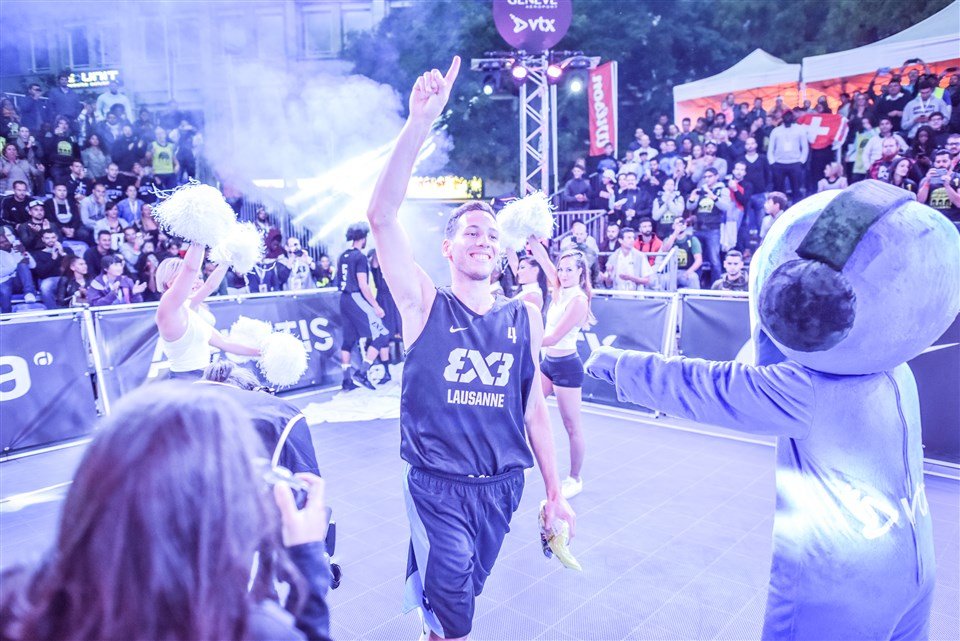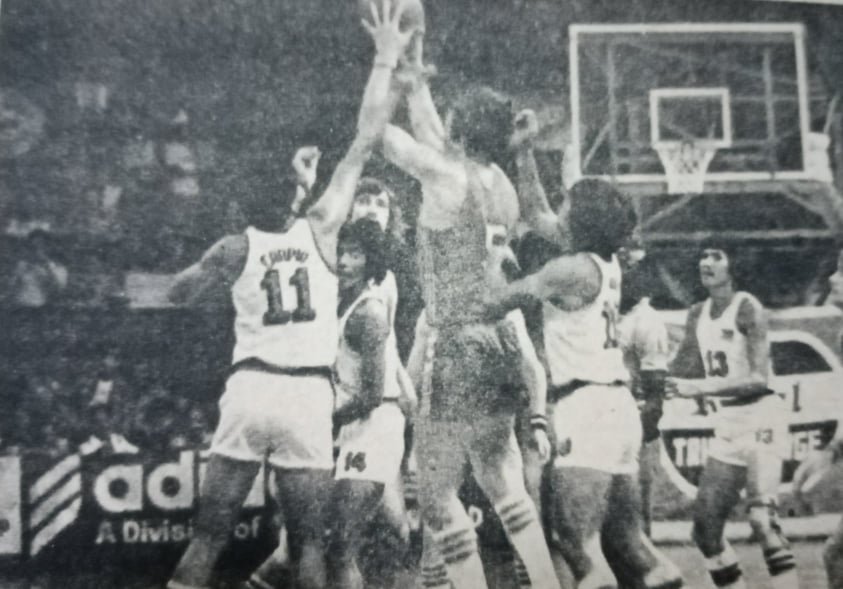
by Henry L. Liao
A year from now, the Philippines will co-host the 19th edition of the FIBA World Cup (formerly known as the World Basketball Championship before being renamed as such in 2014)) with Japan and Indonesia. With the hosting rights, the country is automatically seeded to the 32-nation quadrennial competitions.
This will mark the second time that the Philippines will play host to the prestigious event. The first came during the 8th World Basketball Championship from October 1-14, 1978.
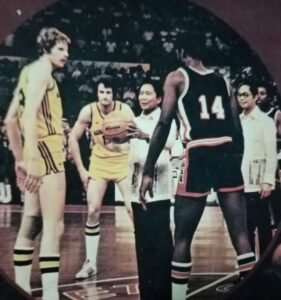
The first hosting gig actually should have been secured much, much earlier – more than six decades ago. However, it was aborted at the 11th hour.
According to FIBA’s “The Basketball World” book published in 1972, the Central Board of the FIBA, at its session held in Santiago de Chile, had accepted the invitation extended by the Basketball Association of the Philippines to hold the fourth World Championship at Manila in 1962.
The Philippines had been very active in international basketball and had taken part in all Olympic basketball tournaments and two World Championships; they had also taken part, of course, in all Asian Games and Asian Basketball Confederation (ABC) tournaments. The choice of the Philippines as the venue of a world championship was therefore wise and proper.
However, once again politics interfered with the sport. The government of the Philippines, under President Diosdado Macapagal, had a few weeks before the date set for the World Championship, decided to refuse entry visas to players and team officials coming from countries with a socialist regime such as Yugoslavia.
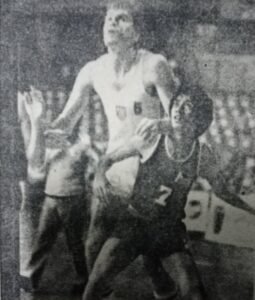
There followed a tremendous battle involving Macapagal, ministers of state, the media, and the sportspeople of the Philippines, but to no avail. The BAP president, Ambrosio Padilla, and his secretary-general, Dionisio Calvo, made a hasty trip to the FIBA headquarters in Munich, Germany in the hope of salvaging the World Championship. But when they returned to Manila, they had to concede defeat.
The Executive Commission of the FIBA hurriedly convened by the Secretary-General, met at Munich early in November 1961 under the chairmanship of the FIBA president. It decided to (a). to withdraw the World Championship from the Philippines, (b) to exclude the Philippine national team from the next World Championship, and (c) to impose a fine of US$2,000 on the BAP.
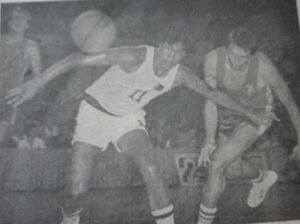
As several teams that had planned to attend the World Championship were already on their way to Manila, the FIBA decided to authorize an invitational tournament to be held in Manila without a FIBA title. It also accepted the invitation of the Brazilian Basketball Confederation to hold the 4th World Championship at Rio de Janeiro – also the site of the 2nd WBC where the Philippines, bannered by Carlos Loyzaga and Lauro Mumar, brought home a bronze medal – in the following spring (May 10-26, 1963)
Moreover, the FIBA stripped the Philippines of an automatic berth in the 1964 Tokyo Olympics even though our boys topped the 1963 ABC tournament in Taipei, Taiwan. We were forced to take part in the pre-Olympic qualifier in Yokohama, Japan, and failed miserably at sixth place (only the top four placers earned berths to the Tokyo Olympics proper).
Fast track to 1978 – the country was awarded the hosting rights to the 8th WBC even as our top-notch players have turned professional with the Philippine Basketball Association (PBA) three years earlier.
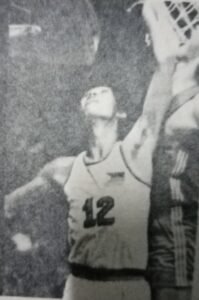
With the FIBA still more than a decade away from introducing its “open basketball” policy in 1989 that allowed pros to take part in its organized tournaments, our ragtag national team was composed of the best players from the amateur ranks.
The 1978 games attracted 14 teams, including our Asian neighbor’s People’s Republic of China (11th place) and South Korea (13th).
As hosts, our boys were automatically seeded into the eight-team championship phase, along with the old Soviet Union, then the defending titlist.
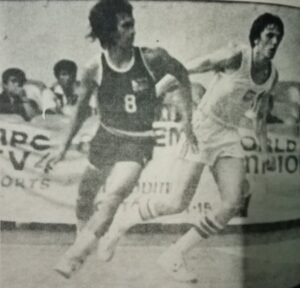
The Philippines finished with a 0-8 record – losses in the seven round-robin games plus the seventh-to-eighth-place classification game against Australia where we were beaten, 92-74, but ranked eighth overall ahead of the six teams that were relegated to the consolation round after the preliminary phase.
Ramon Cruz topped the Filipinos with an 11th-ranking 16.5-point average in eight appearances in the tournament, including a high of 33 in a 99-88 loss to sixth-place Canada. A 5-11, 150-pound forward, the then 22-year-old Cruz also netted 31 markers in a 117-101 loss to Yugoslavia, which eventually topped the tournament with an 82-81 overtime decision over the Soviet Union in the gold-medal game. (Brazil edged Italy, 86-85, to settle for the bronze.)
Bernardo (Joy) Carpio and team skipper Alexander Carino each averaged 9.6 ppg for the Filipinos.
Other members of the PH team were Stephen Watson, Eduardo Merced, Federico (Padim) Israel Jr., Federico Lauchengco, Nathaniel (Nael) Castillo, Gregorio (Yoyong) Gozum, Jr., Leopoldo Herrera, Caesar Yabut, and Cesar Teodoro.
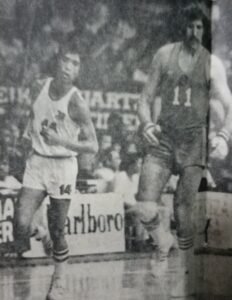
The head coach was Nicanor Jorge.
Drazen Dalipagic was named the 8th WBC Most Valuable Player. He was joined on the All-Tournament team by compatriots Kresimir Cosic and Dragan Kicanovic, Brazil’s Oscar Schmidt, and the Soviet Union’s Vladimir Tkachenko.
The top 10 scorers in the tournament were 1-Kamil Brabenec (Czechoslovakia), 26.9 ppg; 2-Zhang Weiping (People’s Republic of China), 25.1; 3-Choi Bu-Young (South Korea), 21.1; 4-Drazen Dalipagic (Yugoslavia), 20.0; 5-Oscar Schmidt (Brazil), 19.0; 6-Leo Rautins (Canada), 17.9; 7-Marcel De Souza (Brazil), 17.7; 8-Dragan Kicanovic (Yugoslavia), 16.5; 9-Renzo Bariviera (Italy), 16.2; and 10-Marcos Antonio Leite (Brazil), 14.7.
+++
A week before the tournament unwrapped, Yugoslavia and Canada played an exhibition game against PBA powerhouses Crispa and Toyota, respectively, in a doubleheader witnessed by a crowd of 25,000 at the Araneta Coliseum.
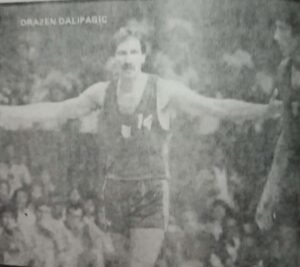
The Yugoslavs, who eventually captured the World crown with an unblemished 10-0 record, manhandled Crispa, 108-92. The Redmanizers showed up for the game without William (Bogs) Adornardo and Bernard Fabiosa and with Fortunato (Atoy) CoJr. bothered by sore eyes.
Toyota, on the other hand, beat eventual sixth-placer Canada, 92-88, behind the heroics of Robert Jaworski, who with 6.6 seconds to play, intercepted a Canadian throw-in to prevent a potential 90-all deadlock at the buzzer. And to ice the game, the Big J sank a pair of free throws for the final score.
The Philippine team, upon the request of the old Czechoslovakia, also agreed to a tuneup game with the Czechs and was beaten black and blue to the tune of 105-70. The European nation ranked ninth at the tournament’s end.
The 2023 FIBA World Cup will feature 32 countries. Teams will have to earn berths through three-round home-and-away qualifiers in the Asia-Pacific, Americas, Europe, African zones.
The Philippines and Japan are automatically seeded into the World Cup but the third host, Indonesia, will have to go through the Asian zone games to qualify.
- Luka Doncic tops fans but trails peers in NBA All-Star voting shocker - January 22, 2026
- 2026 NBA All-Star Game set for Intuit Dome with three-team format - January 22, 2026
- LeBron James’ limited availability puts All-Star hopes in question - January 22, 2026

